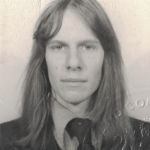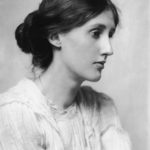What We Talk About When We Talk About ‘Queering’
‘Queering’ as a tool of historical analysis does not mean an attempt to ascribe a specific label to a historical figure or to make queer that which is not.
What ‘queering’ means is to embrace historical figures in their entirety, including the parts of their lives which are not so clear-cut or easy to interpret from a modern standpoint.
You may ask, “How do we define an LGBTQ+ person?” Having language that allows us to self-identify is a relatively modern phenomenon, and even when we did begin to use and create language to describe ourselves, being LGBTQ+ was criminalised in this country for a long time and many people lived a closeted life.
We look at the evidence of people’s past words and actions from first-hand perspectives and offer a space to examine them in a way that challenges the dominant interpretation of assumed cis/heterosexuality.
What We Talk About When We Talk About ‘Queering’
Here we shine a light on a century of hidden and forgotten LGBTQ+ people and places, highlighting key locations connected with historical LGBTQ+ figures who were born, lived, or were inspired by our Island.
LGBTQ+ people have always existed, but history books tend to barely mention, completely ignore or deliberately erase LGBTQ+ people’s existence and contributions. It is important for us to show that diverse genders and sexualities have been present throughout history.
There is more to our past than cis/heteronormative narratives would have us believe.
We were amazed to discover the scope and talent of LGBTQ+ people from the past who have a strong connection to the Isle of Wight. Some you may have heard of, others are less well known and our list is not exhaustive. This is the first time they have been highlighted collectively and you can follow them from East to West Wight to form your own unique LGBTQ+ Heritage Trail.
You can learn more in the project’s book here.

Charlotte Mew
Charlotte Mew Charlotte Mew, a celebrated poet in her time, is now almost forgotten. Born in 1869 in

Anna Murray
Anna Murray is known for her work as a Sexual Health Community Practitioner for Solent NHS Trust, as

Karl Love
Karl Love is a councillor for East Cowes, and is one of the first openly gay local councillors

Patrick Gale
Patrick Gale is a British author who was born on the Isle of Wight in 1962. As a

Bruce Laker / Phaedra Kelly
(1955-2019) In 1983, Phaedra Kelly’s wedding at the Isle of Wight Registry Office made national headlines when he

Nikki Dorakis
(1954-2013) Nikki Dorakis was called Enrico Cortesi when he was born in Ventnor, Isle of Wight. He was

Keith Biddlecombe
Keith Biddlecombe was born on the Isle of Wight in 1936. He served in the Royal Navy in


Tom Priestley
Tom Priestley is an award-winning British film and sound editor, the son of writer J B Priestley. Tom’s



Kenneth Kendall
(1924 – 2012) Kenneth Kendall was a popular British broadcaster, known for his pioneering work as a newsreader


John Seely and Paul Paget
(1899–1963 Seely, 1901–1985 Paget) ‘The Shack’, a small cottage in the grounds of Mottistone Manor on the Isle of


Lord Alfred Douglas Tennyson
(1809-1892) Farringford House in Bedbury Lane in the small town of Freshwater on the Isle of Wight was


Oscar Wilde
(1854-1900) Oscar Wilde visited Ryde on the north coast of the Isle of Wight in 1884 to give


Algernon Charles Swinburne
(1837-1909) Algernon Charles Swinburne is buried at St. Boniface Church in Bonchurch, Isle of Wight. He was an


Virginia Woolf
(1882-1941) Fiercely intelligent feminist writer Virginia Woolf had various affairs with both men and women, most famously a


Robert Nichols
(1893-1944) Robert Nichols was an English poet and playwright often referred to as one of the First World


The Ferguson Gang
(1920’s) ‘Bill Stickers’, ‘Sister Agatha’, ‘Red Biddy/ White Biddy’ and ‘Kate O’Brien the Nark’ were pseudonyms used by


Joe ‘Marion’ Carstairs
(1900 – 1993) Marion Barbara Carstairs was known as ‘Joe’, she had numerous female lovers, which were



